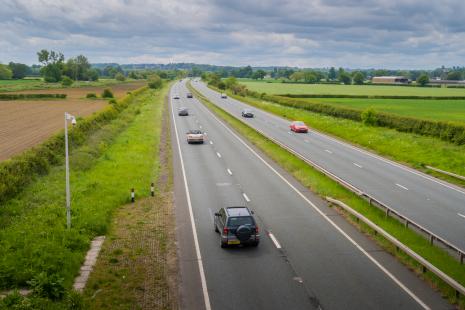
A police boss has
pledged to put more bobbies on the beat in North Wales.
The region’s
newly-elected police and crime commissioner, Andy Dunbobbin (pictured), says he will
increase the number of officers and staff during his three-year term of office.
He also promised to
improve the technology at their disposal so police officers could spend more
time out and about in communities across North Wales, rather than having to
return to their police stations to complete form filling or search for
information.
Mr Dunbobbin gave
the assurance in his first Police and Crime Plan which sets out the overall
strategy for policing North Wales that Chief Constable Carl Foulkes will have
to implement.
The plan will be
presented to a meeting of the North Wales Police and Crime Panel next Monday
(September 20).
The priorities
contained in the commissioner’s new blueprint include:
- Delivering
safer neighbourhoods
- Supporting
victims and communities
- Fair
and effective criminal justice system
In drawing up the
plan, the commissioner says he has consulted widely and listened to what
the public want.
According to Mr
Dunbobbin, one frequent complaint made to him during his election campaign was
that residents didn’t see any police officers in their communities any more.
He said: “I will
work hard to improve the efficiency and effectiveness of police officers and
staff.
“The number one
priority for communities is to improve visible policing - providing
reassurance, gathering intelligence and disrupting criminal activity.
“Local Neighbourhood
Policing Teams (NPTs) provide the visibility and reassurance but are also
widely regarded as being an invaluable source of intelligence to tackle the
most serious and organised criminality.
“The work of our
Regional Organised Crime Unit (ROCU) and the Wales Extremism and Counter Terrorism Unit (WECTU)
relies heavily on the local intelligence NPTs provide. Neighbourhood
policing is the bedrock of this Plan.
“In order to tackle
issues ranging from drug dealing in our towns to rural crime on our farms, it’s
imperative that all our North Wales communities have positive relationships and
experiences with their local police, helping break down existing barriers and
empowering residents to have their say on where we as a service should be
focusing our efforts.
“In addition to
increasing the number of officers in our communities, I am also committed to
working with the Chief Constable in improving the digital support available to
our current officers and staff thereby increasing the amount of time they spend
in the community.”
Improving road
safety was a key area for Mr Dunbobbin who wants to reduce the number of people
killed or being seriously injured.
He says there will
be a tough approach towards dangerous or careless driving which would not be
tolerated.
Tackling and preventing
domestic abuse and sexual violence was also a major priority and Mr Dunbobbin
pledged to make North Wales a “hostile environment” for perpetrators.
At the same time,
far too many women were being sent to prison with devastating consequences for
their families, particularly their children, so Mr Dunbobbin will be
spearheading the development of a new female offender strategy.
Among the
innovations Mr Dunbobbin wants to introduce is a victims’ panel so that people
who have suffered crimes against them can be heard and given the support they
need.
Reducing reoffending
meant there would be fewer victims so Mr Dunbobbin is keen on addressing the
root cause of offending and strengthening rehabilitation measures.
With that in mind,
he will continue to fund the pioneering Checkpoint Cymru programme to divert
low-level offenders away from committing crimes as well as supporting other
innovative crime prevention and rehabilitation project in North Wales.
Coming from a background in the
technology sector, the commissioner was acutely aware that scams and online
attacks now account for almost half of all offences.
As well masterminding the fight
against cybercrime in North Wales, Mr Dunbobbin will be playing a leading UK
role after the Association of Police and Crime Commissioners
elected him as their deputy lead for police technology and digital and deputy
lead for economic and cybercrime, including fraud.
He said: “It is vital that the police services’ approach to cybercrime is well
co-ordinated and effective in providing a quality service for the people of
North Wales.
“Cybercrime offences are still hugely
under-reported nationally and we will work to build the confidence of people
and businesses within North Wales to report these crimes.”







